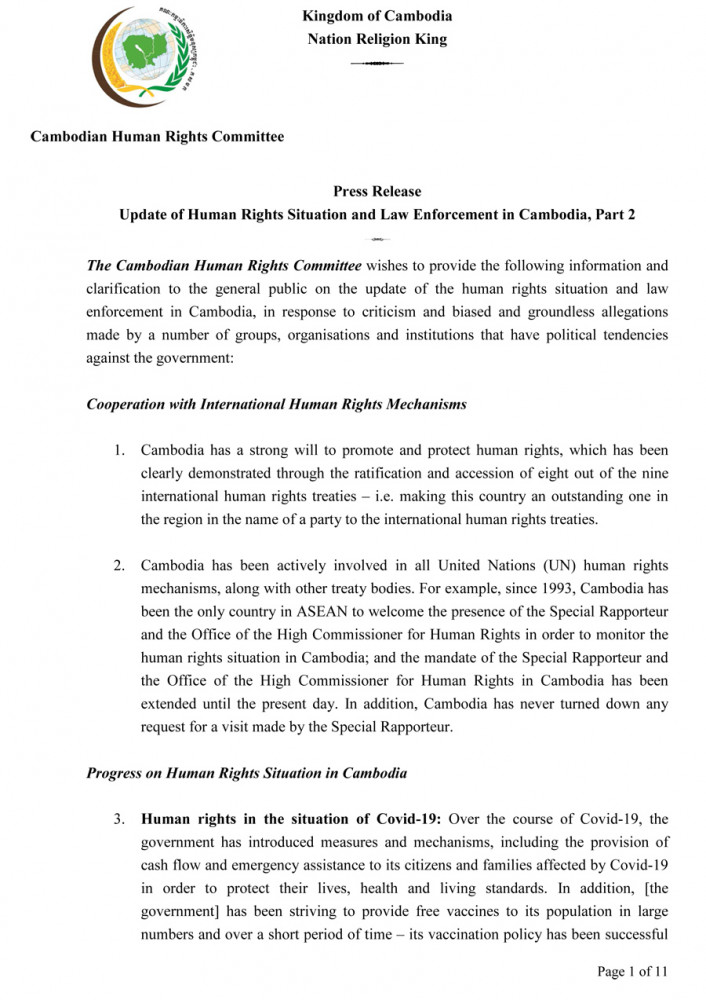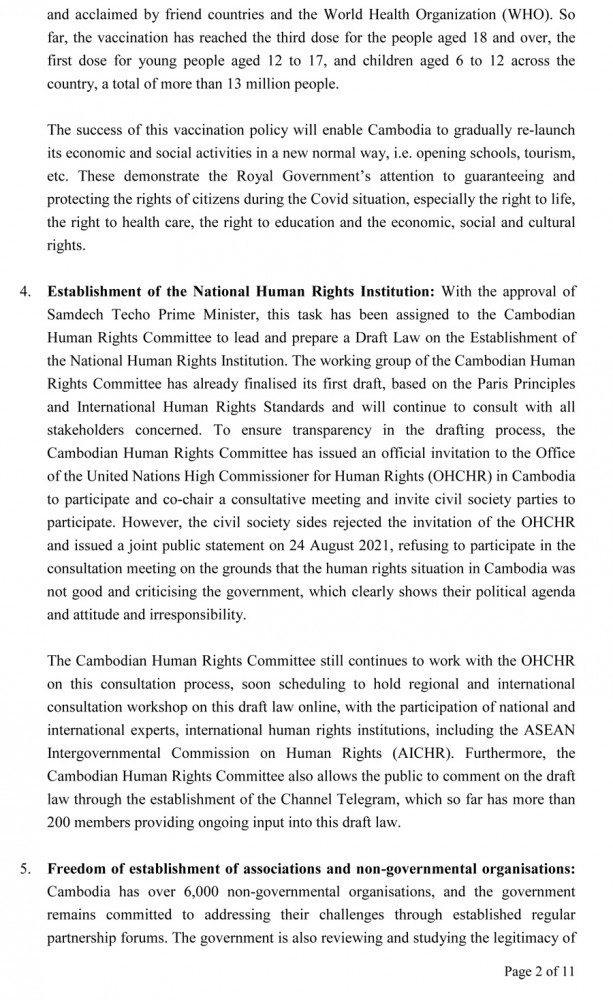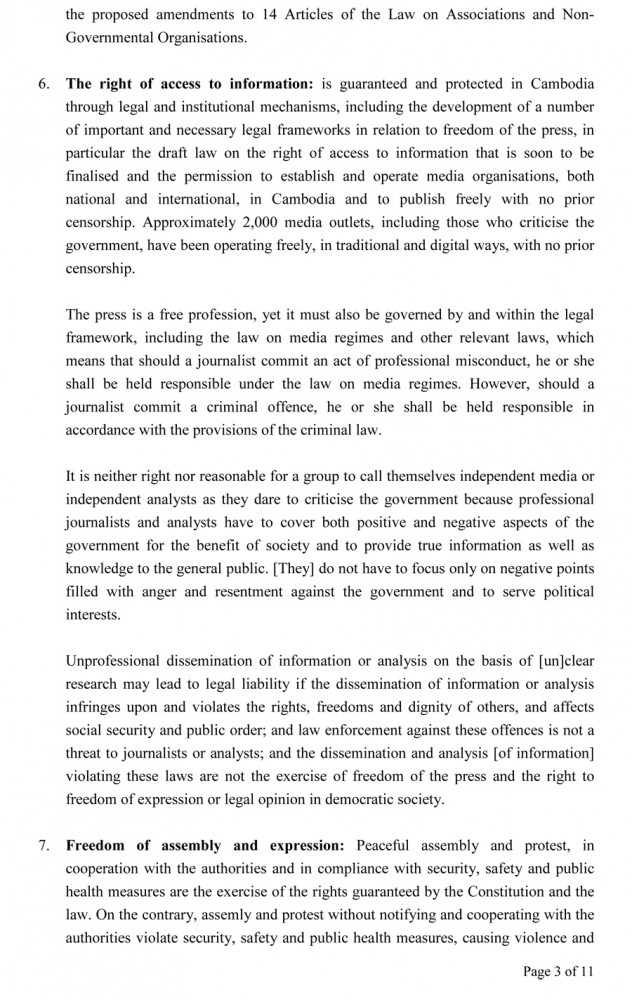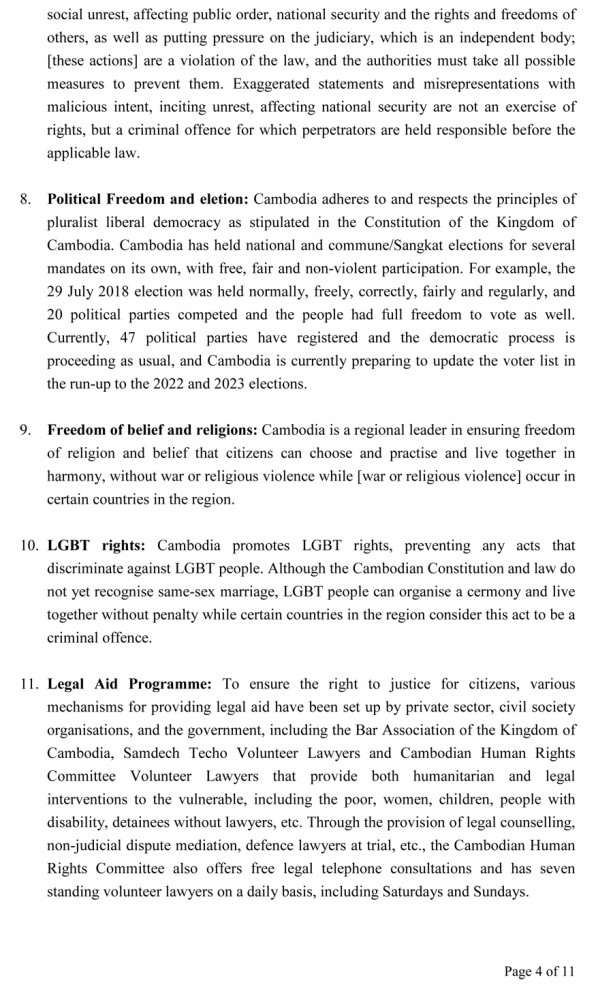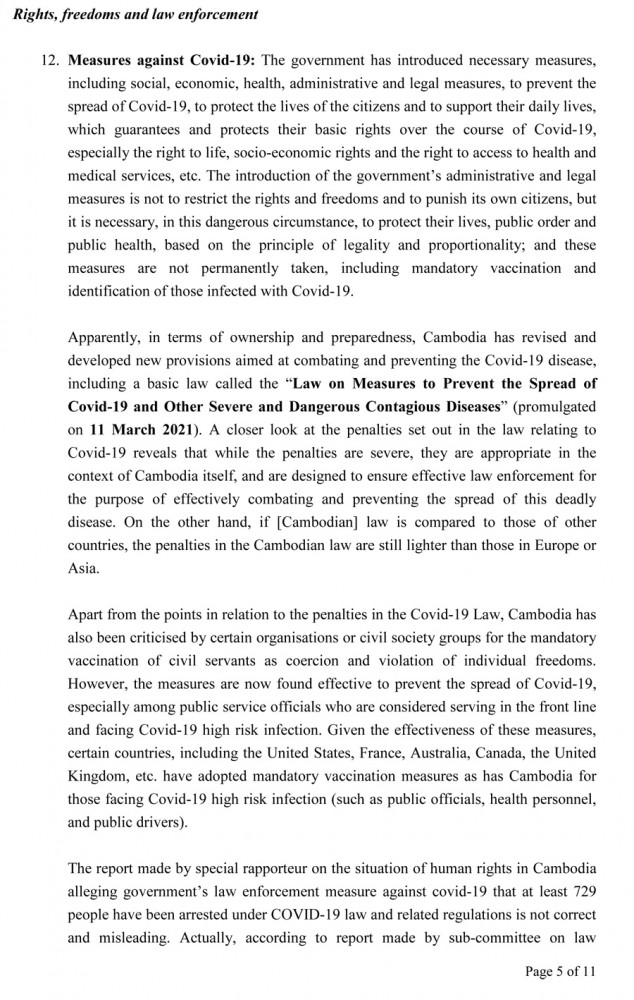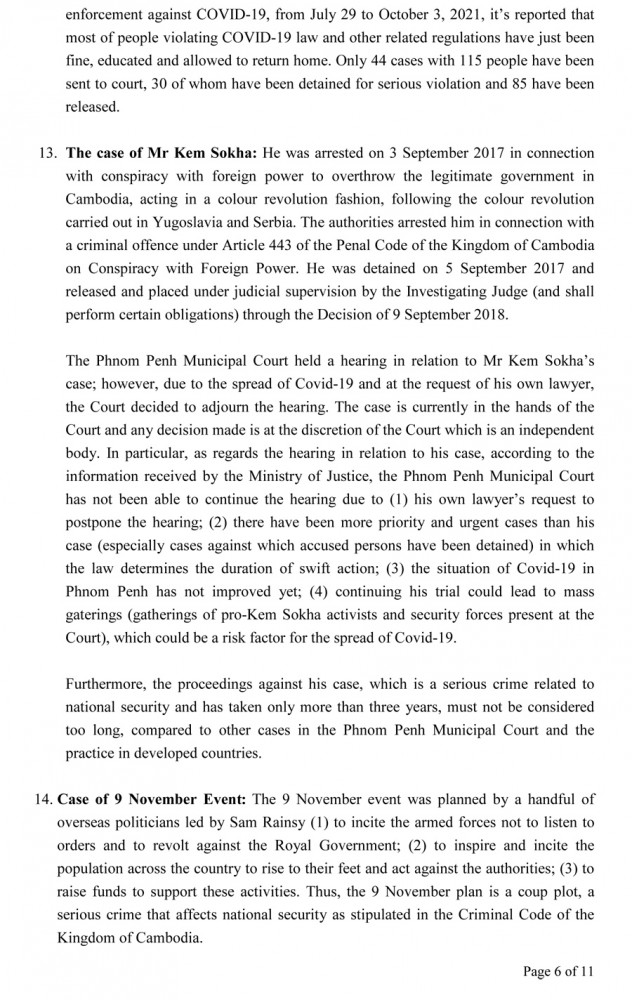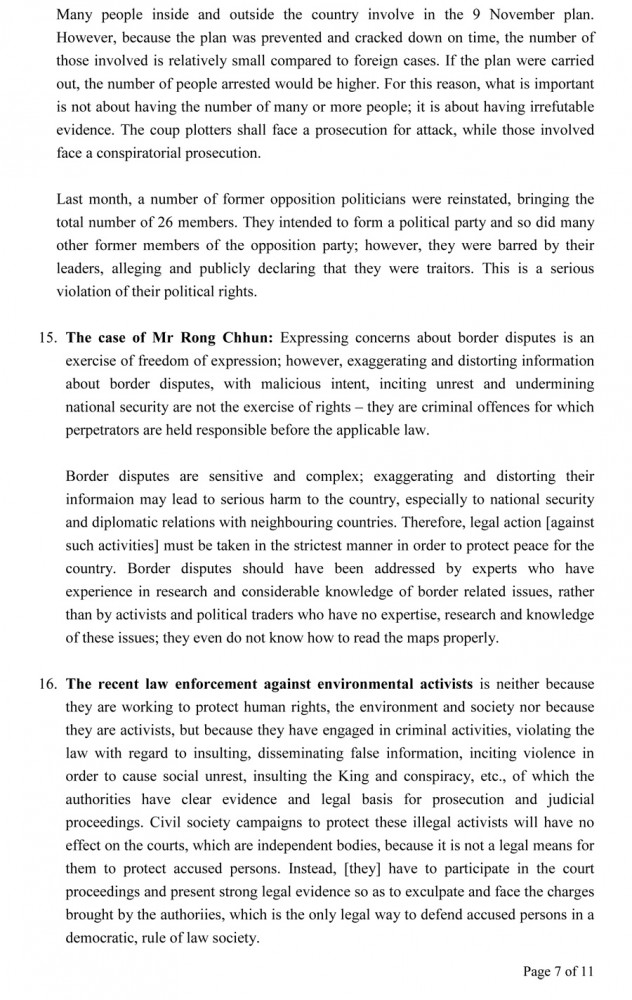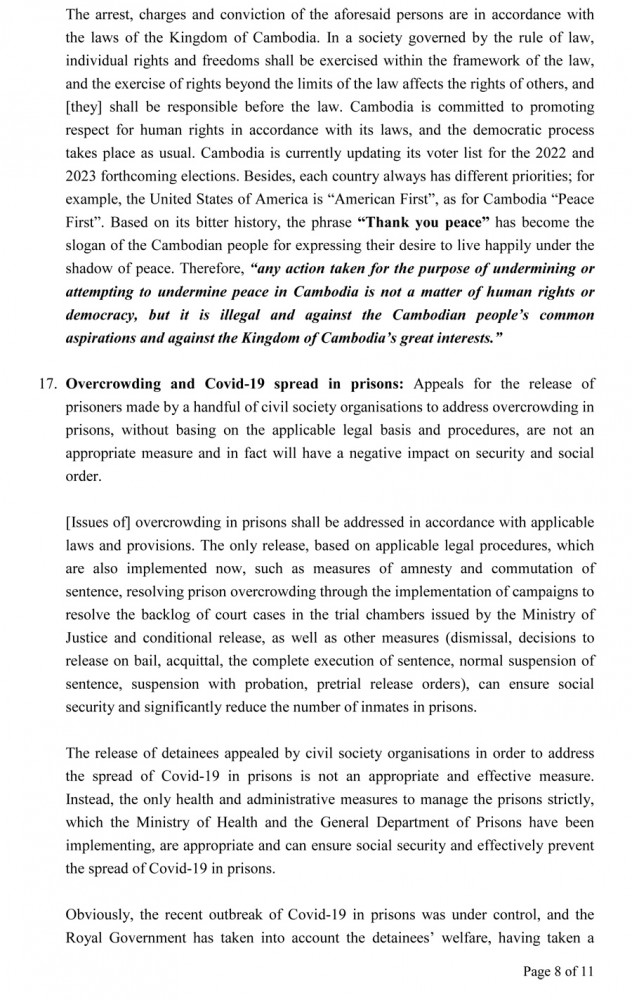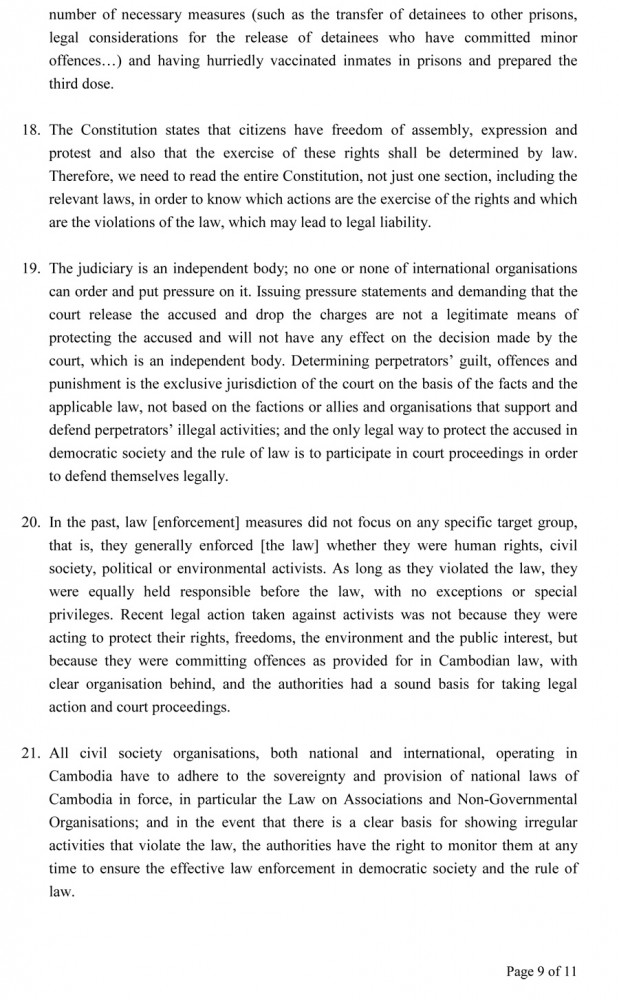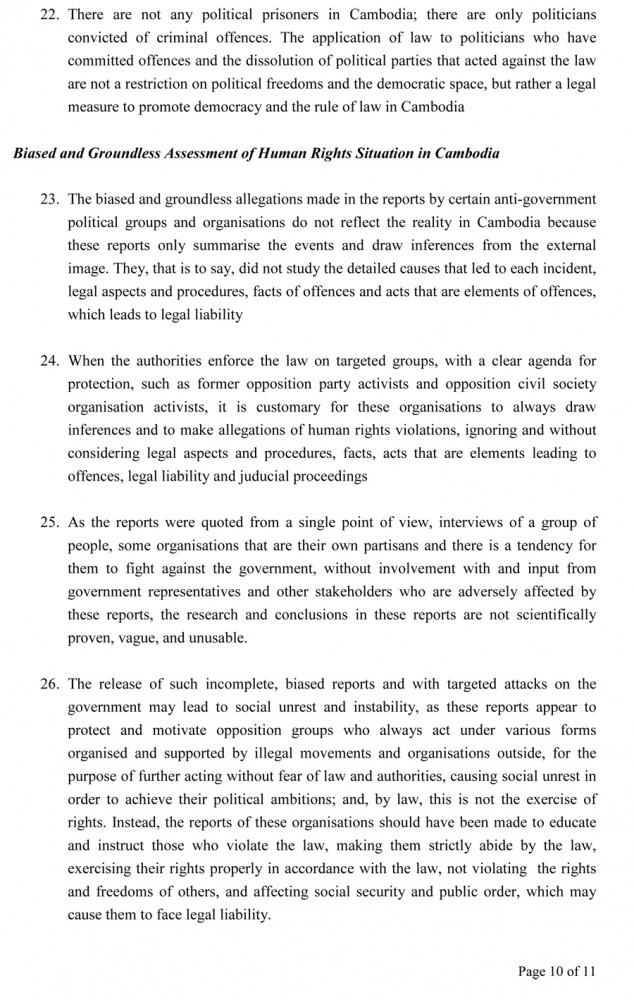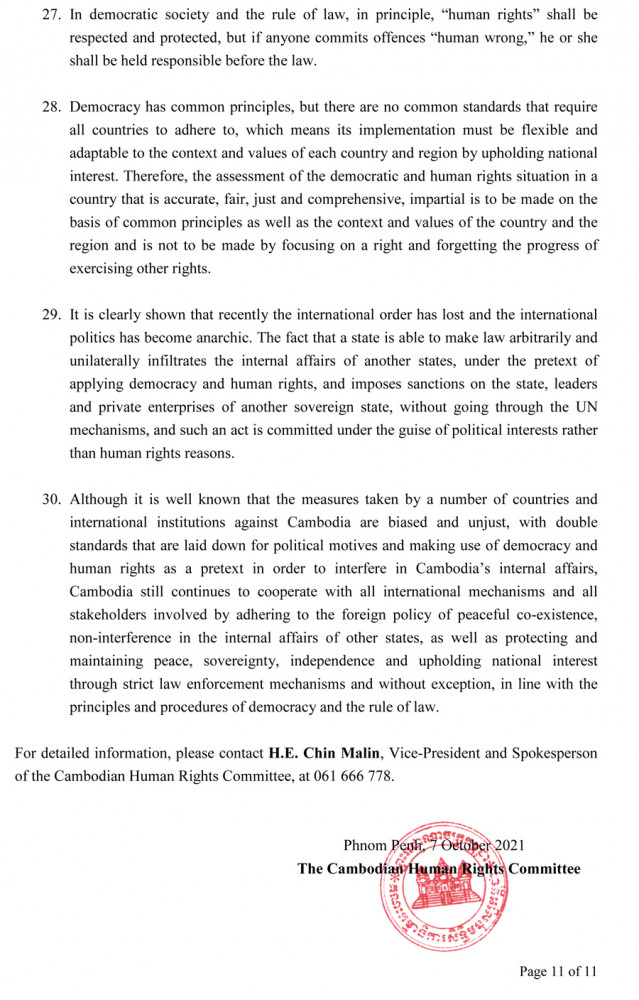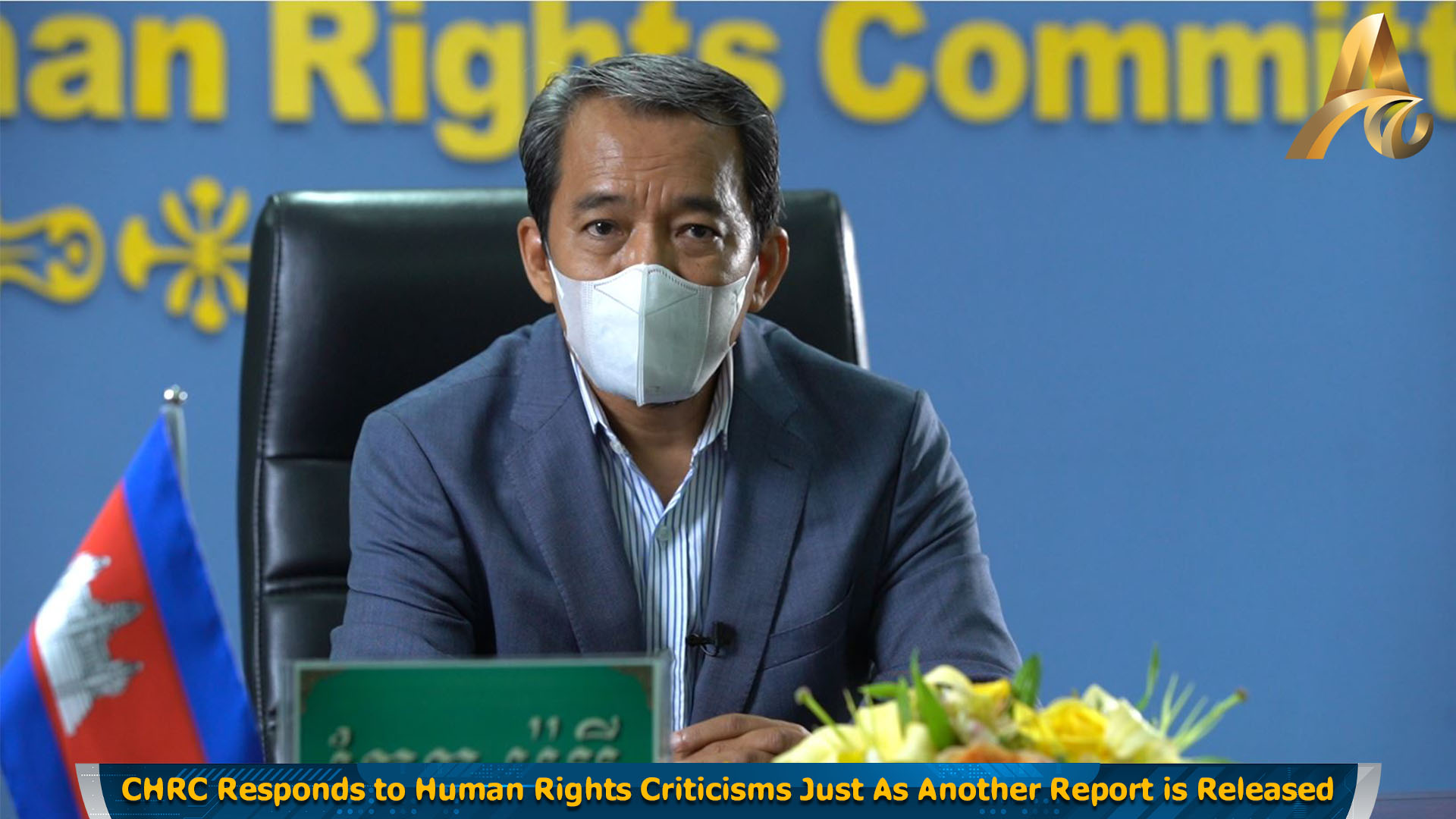Phnom Penh: The Cambodian Human Rights Committee has issued “part two” of its response to recent criticism of the human rights situation in the kingdom. The 30-point statement was released just hours after the first report by the new UN Special Rapporteur to Cambodia. While not directly responding to the report by Vitit Muntarbhorn, the CHRC’s statement does deal with a number of issues he raises.
The statement was released by the Vice President and spokesman of the CHRC, Chin Malin. In it, he states that there are “not any political prisoners in Cambodia; there are only politicians convicted of criminal offences.” He says the application of the law to politicians who have committed offences and the dissolution of political parties that acted against the law should not be seen as a restriction on political freedoms and the democratic space, “but rather a legal measure to promote democracy and the rule of law in Cambodia”.
The 30-point statement defends Cambodia’s actions in a number of cases, including those of Rong Chhun, the Mother Nature activists and even Kem Sokha. Reacting to recent criticism of these judgements and proceedings, Chin Malin says “biased and groundless assessments” of the human rights situation in Cambodia do not reflect the reality on the ground, “because these reports only summarise the events and draw inferences from the external image. They did not study the detailed causes that led to each incident, legal aspects and procedures, facts of offences and acts that are elements of offences, which leads to legal liability.”
He says whenever Cambodian authorities enforce the law on targeted groups, “with a clear agenda for protection, such as former opposition party activists and opposition civil society organisation activists, it is customary for these organisations to always draw inferences and to make allegations of human rights violations, ignoring and without considering legal aspects and procedures, facts, acts that are elements leading to offences, legal liability and judicial proceedings.”
He also says the reports are often “quoted from a single point of view, interviews of a group of people, some organisations that are their own partisans and there is a tendency for them to fight against the government, without involvement with and input from government representatives and other stakeholders who are adversely affected by these reports, the research and conclusions in these reports are not scientifically proven, vague, and unusable.”
He goes onto warn that the “release of such incomplete, biased reports and with targeted attacks on the government may lead to social unrest and instability, as these reports appear to protect and motivate opposition groups who always act under various forms organised and supported by illegal movements and organisations outside, for the purpose of further acting without fear of law and authorities, causing social unrest in order to achieve their political ambitions; and, by law, this is not the exercise of rights. Instead, the reports of these organisations should have been made to educate and instruct those who violate the law, making them strictly abide by the law, exercising their rights properly in accordance with the law, not violating the rights and freedoms of others, and affecting social security and public order, which may cause them to face legal liability.”
The CHRC’s lengthy statement came hours after the first report from the new UN Special Rapporteur to Cambodia, Vitit Muntarbhorn, who appeared to have a cordial first meeting with Prime Minister Hun Sen late last month. In his first report, issued from the UN in Geneva, Switzerland, he warns that Cambodia is “backsliding” away from democracy and has urged the Royal Government to act.
He writes, “Suspend draconian laws and reform them, drop court cases and end the detention of those who disagree with the authorities. Restore political rights to members of the political opposition, and propel reconciliation. Share the power and end the monopoly."
The “shrinking civic and democratic space is particularly worrying,” he went on, “given that the country is marking the 30th anniversary of the signing of the Paris Peace Accords, which saw Cambodia emerge from decades of genocide and war. Now we see disturbing backsliding.”
Muntarbhorn says this was most recently illustrated by the Government's handling of the pandemic. “Intolerance towards online criticism of the Covid-19 response has led to arrests and prosecutions with a chilling impact on freedom of expression, leading to both self-censorship and censorship.”
Against the backdrop of what he calls a “political clampdown”, Muntarbhorn has expressed concern about the environment for the 2022 commune elections and the 2023 national elections, which he says “may take place without the existence of a viable opposition party, endangering people's right to genuinely participate in public affairs.”
Again, while not directly referencing the UN Special Rapporteur’s statement, the CHRC has pointed out that no fewer than 47 parties are registered for the upcoming 2022 commune elections and that “Democracy has common principles, but there are no common standards that require all countries to adhere to, which means its implementation must be flexible and adaptable to the context and values of each country and region by upholding national interest. Therefore, the assessment of the democratic and human rights situation in a country that is accurate, fair, just and comprehensive, impartial is to be made on the basis of common principles as well as the context and values of the country and the region and is not to be made by focusing on a right and forgetting the progress of exercising other rights.”
There has been no response as yet to the UN Special Rapporteur’s first report from Cambodia’s Permanent Representative to the UN in Geneva but one is expected.
